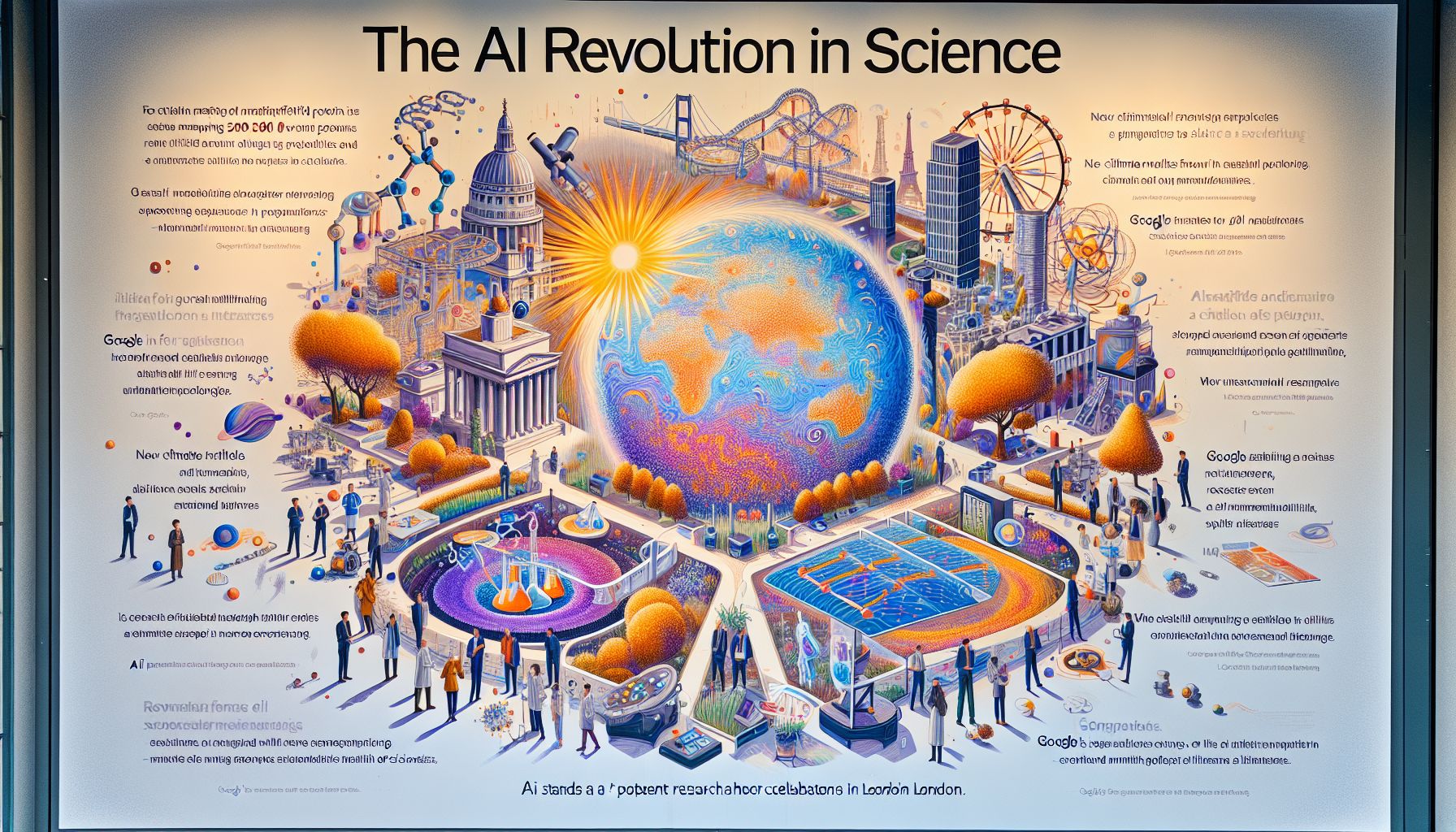AI Revolution in Science: DeepMind Forum Showcases Breakthrough Technologies

London, Tuesday, 19 November 2024.
The inaugural AI for Science Forum in London revealed groundbreaking achievements, including AlphaFold’s mapping of 200 million proteins and climate models running 1,000 times faster than traditional methods. Google’s collaboration with scientists demonstrates AI’s role as a powerful research accelerator rather than a replacement for human expertise.
Accelerating Scientific Discovery
The forum, co-hosted by Google DeepMind and the Royal Society, highlighted AI’s transformative potential in science, from expediting drug discovery to revolutionizing climate modeling. By showcasing tools like AlphaFold and AlphaMissense, the event underscored AI’s ability to solve complex scientific problems more efficiently. AlphaFold, a remarkable AI model, has successfully predicted the structures of over 200 million proteins, a feat that has significantly advanced research in areas such as drug-resistant diseases and neglected tropical illnesses[1].
AI’s Impact on Scientific Collaboration
James Manyika, Senior Vice President at Google, emphasized the collaborative nature of AI in science, stating that AI acts as a powerful tool to enhance human expertise rather than replace it. This perspective was echoed throughout the forum, which brought together Nobel laureates, industry leaders, and policymakers. The collective efforts aim to address AI’s challenges, such as data bias and privacy concerns, while maximizing its benefits[2].
Technological Innovations in Climate and Medicine
Among the technological innovations presented, the NeuralGCM climate model stood out for its ability to simulate atmospheric conditions up to 1,000 times faster than traditional models. This rapid simulation capability is crucial for advancing climate science and creating more accurate weather forecasts. In the medical field, AI tools like AlphaMissense and screening platforms have facilitated over 600,000 screenings for conditions like diabetes and cancer, proving AI’s significant impact on public health[3].
Future Prospects and Challenges
As the forum concluded, the discussion shifted towards the future of AI in science. Manyika and other speakers emphasized the need for ongoing collaboration among scientists, ethicists, and safety experts to navigate AI’s ethical and practical challenges. The consensus was clear: while AI presents numerous opportunities for scientific advancement, it requires a coordinated approach to ensure that these benefits are realized responsibly[4].

